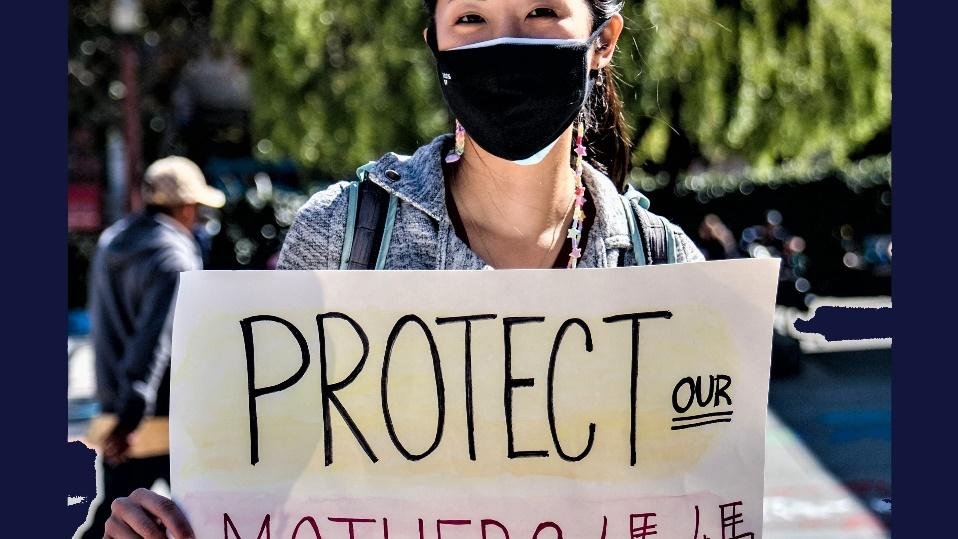Reflections & articles
Questions and reflections to help us engage dilemmas that matter
by considering the brain & the spirit.
How do we talk about racial harm?
After a few days of research, I excavated census data from 1830–1850 confirming the households of my family included enslaved persons. I unearthed a bill of sale in the handwriting of my fourth great-grandfather paying for the enslavement of a five-year old boy named James Walker.
What makes for a healing story?
The story I was told was that Gabriel had been dropped on his head as an infant. He came to live with us when I was eighteen-months old and he was three. It’s possible a brain injury made it difficult for him to remember things. My earliest memories are of Gabriel and they’re loving and tender and comforting. I felt safe with Gabriel, and as we grew closer as sister and brother, I didn’t understand we weren’t biological siblings.
Is God violent or nonviolent?
The twist is that each person’s nervous system has a different threshold, based on our memories. Brain science may be able to point us toward a useful way to think about what is and what isn’t “violent.” Under a threat alert (real or imagined), our brainstem is activated. Our heart races. Stress chemicals are released. As stress increases, our body feels discomfort, pain, and distress approaching agony. When a threat alert is chronic, it becomes physically, mentally, emotionally, relationally, and spiritually taxing to us. And when our body is under an extreme threat alert, higher learning shuts down in the brain.
What can we do to stop abuse?
When you suffer mistreatment growing up, your childbrain makes it intelligible in different ways. You might tell yourself “it was normal, everyone’s family was like that.” If you know that isn’t true because you spent time at other people’s homes, you might tell yourself, “it wasn’t so bad, there were good times too.” When a parent mistreats you, your childbrain can turn it around on you.
How can I tell if a church is safe?
Conceiving of the church as a “body” transforms the quality of our relationships. Being a “body” renders every conversation, disagreement, and mutual discernment potentially sacred. Being a “body” together transforms occasions of conflict into opportunities to listen to one another and enter into spiritual discernment together.
Can theology help our climate?
Trust is a neurobiological phenomenon that helps us regulate our stress. When we are experiencing trust, then we will be better able to regulate our nervous system and retain access to the upper neural pathways in our brain. Those upper pathways are what we need to utilize to think flexibly, systemically, and creatively about how to reverse the climate crisis.
What can we hope for?
I was five years old, playing with my cousin Jenny. We hatched a plan to say aloud every swear word we knew. We sat crosslegged on her bedroom floor. In a whisper, Jenny launched into her list of words. She had an impressive list. When she paused, I boldly inserted the only word I knew: “Damn.” Jenny added more words; meanwhile shame-heat rushed to my face and I thought, “God heard me and now I won’t go to heaven.”
What is trust?
One afternoon when my daughter was eleven, we were running errands and talking. She mentioned a recent fight she’d had with a family member, and I shared a story of a time I’d reconnected with someone after a conflict. Then I said something that—until it came out of my mouth—I didn’t know I thought: “That’s what it means to trust someone: you know conflict won’t destroy the relationship.”
What’s happening in your amazing brain?
A conversation with my friend Leena me sparked new insight related to my feelings toward cockroaches. One night, Leena witnessed me have an outsized reaction to a waterbug on my porch. Once the crisis had been handled, she asked “What do cockroaches symbolize for you?” I’d never thought about that before. Leena’s insightful question prompted me to think back to the first time I remember feeling that way, and a memory surfaced—two actually.
Why include content warnings?
Because your story matters.
If you encounter spots where CW’s, cultural considerations, and other forms of awareness would help expand our community of belonging please reach out.










